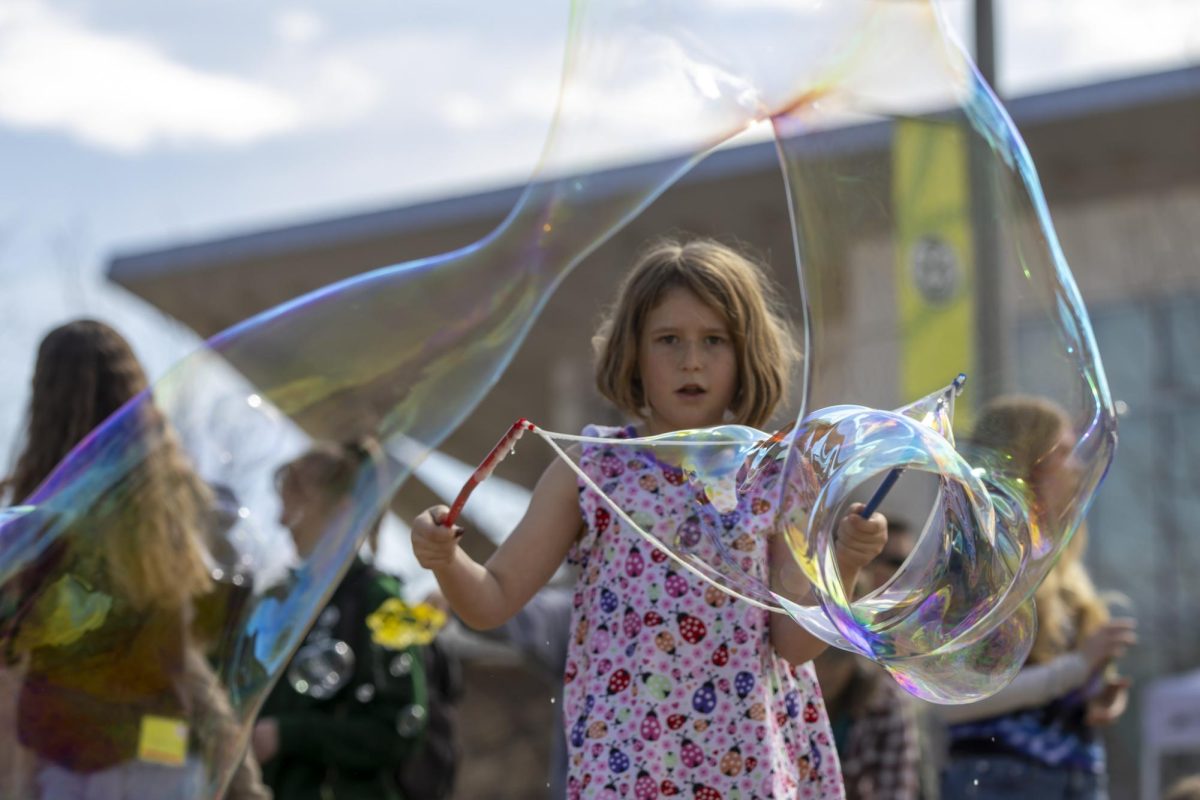Editor’s Note: All opinion section content reflects the views of the individual author only and does not represent a stance taken by The Collegian or its editorial board.
In presidential candidate Donald Trump’s vision of a Aurora, Colorado, which is approximately 70 miles from Fort Collins, violent crime associated with the Venezuelan gang Tren de Aragua is rapidly spreading. But an issue bigger than the gang’s arrested members and their past presence in an apartment complex is that the town of Aurora has quickly become a national talking point in an aggressively antimigrant and anti-immigrant agenda. What’s to come? Well, Trump said the “largest deportation in the history of our country” — starting with Aurora.
There are several truths to the story of Tren de Aragua and their journey to Aurora, but first, I’d like to go back to May 2023. That spring, Texas Gov. Greg Abbott launched a busing system that transported migrants near the Texas-Mexico border into other states, providing “much-needed relief to (Texas’) small border towns,” Abbott said in a 2023 statement. Since the first bus arrived in Denver on May 18, 2023, and as of January, over 15,700 migrants have been transported into the city. This number is likely to have rapidly grown since.
As many of us know, Denver is not a cheap place to live. Its housing costs are consistently on the rise, making it hard for many Coloradans to afford living there, nonetheless migrants who may be new to the city — not to mention how recent city limitations prohibit shelter residents from staying indefinitely, creating additional challenges.
“I don’t mean to detract from the fear toward Tren de Aragua. Watching this situation unfold from Fort Collins is scary, so I can’t imagine what it’s like to hear updates while being in Aurora. But my fear quickly — and I mean quickly — dissipates into anger when serious events about a contained group are used as a vehicle for racism and xenophobia.”
Some migrants bused through Abbott’s program who have few resources or connections in Denver likely face these obstacles with no choice but to move elsewhere. The same goes for any other Denver residents who can’t keep up with the city’s insane living costs. These factors drive subsets of the Denver population into suburbs like Aurora that are close to the city but much cheaper. This transition makes a lot of sense, especially considering foreign-born residents constitute about 21% of Aurora’s population.
America’s collective impression of Aurora these past few weeks, depicted by the news and by our politicians, is not indicative of reality. As I mentioned earlier, there are several truths about Tren de Aragua; they were present within the Aurora community at one point, and they are a historically dangerous group. But fears about their actions — triggered by a viral surveillance video of several men with guns — have been used to vilify the migrant community within Aurora, Denver and the whole nation.
Mike Coffman, the mayor of Aurora, called the situation “grossly exaggerated” shortly after Trump blasted Aurora during the 2024 presidential debate. Coffman’s statement echoes the protests of many Aurora residents refusing to label the city as overrun with crime, drugs and violence, contrary to what Trump parrots.
Despite Trump’s belief that depicting Aurora as a bloody city helps the situation, such antimigrant rhetoric only jeopardizes the safety of Aurora residents who are completely uninvolved. According to CBS, several tenants near the apartment complex have even received texts calling them “animals” and have been threatened with “more firepower than you can ever imagine.”
I don’t mean to detract from the fear toward Tren de Aragua. Watching this situation unfold from Fort Collins is scary, so I can’t imagine what it’s like to hear updates while being in Aurora. But my fear quickly — and I mean quickly — dissipates into anger when serious events about a contained group are used as a vehicle for racism and xenophobia. Fearing a gang and fearing the migrant community in and around Aurora are two entirely different things.
However, thanks to Trump, people completely unaffiliated with Tren de Aragua face social scrutiny, threatening policy and explicit racism simply for being in physical and cultural proximity to the gang. Aurora citizens are not animals because they live near an area vilified by the media.
I cannot stress enough the importance of doing your research on this topic. No matter how much you love Trump, Kamala Harris or any other politician, learning to look beyond political talking points is critical in seeing the whole picture of an issue — especially this one. The depiction of Aurora is unfair to its residents as well as the migrant community in Colorado. My concern goes out to anyone who has been affected both by Tren de Aragua and the widespread racism that has ensued as a result.
Reach Emma Souza at letters@collegian.com or on Twitter @_emmasouza.












